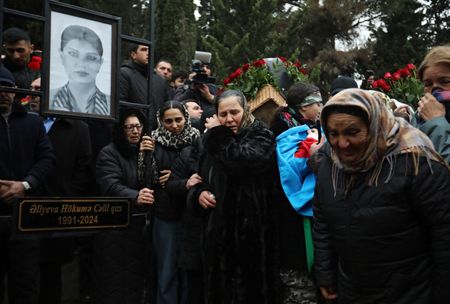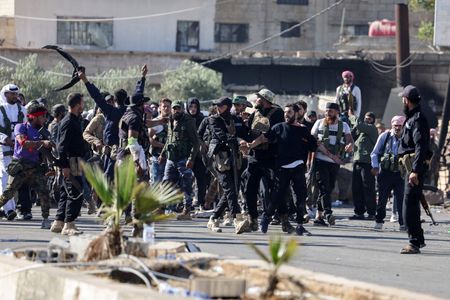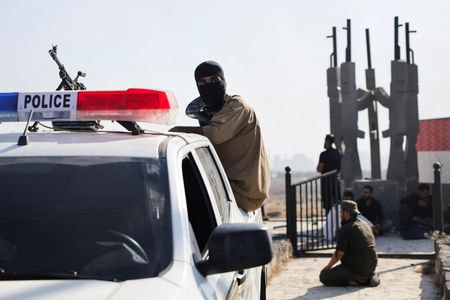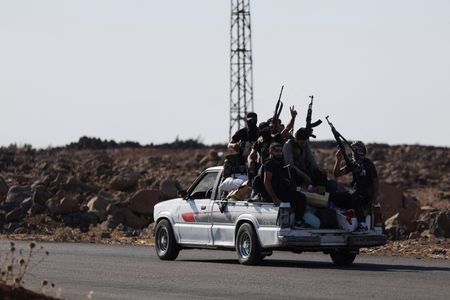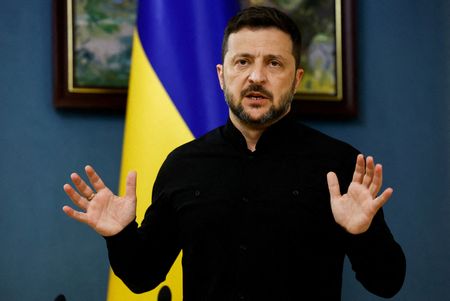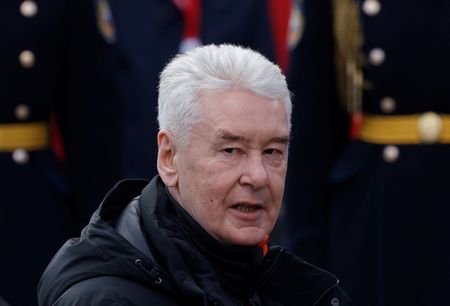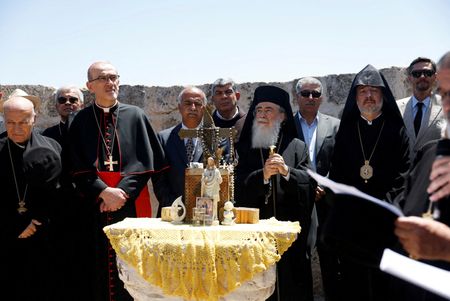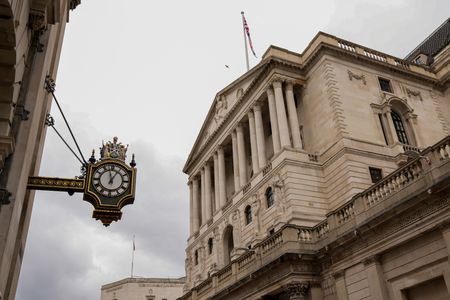By Nailia Bagirova
KHANKENDI, Azerbaijan (Reuters) -Ilham Aliyev, the president of Azerbaijan, on Saturday said he wanted Russia to publicly acknowledge that it had accidentally shot down an Azerbaijani passenger plane in December last year, killing 38 people on board, and to punish those responsible.
President Vladimir Putin apologised at the time to Aliyev for what the Kremlin called a “tragic incident” over Russia in which an Azerbaijan Airlines plane crashed after Russian air defences opened fire against Ukrainian drones.
But he stopped short of saying Russia had shot down the aircraft.
Aliyev, speaking at a news conference in the city of Khankendi during an event called The Global Media Forum, made clear that he wanted much more from Moscow whom he accused of inaction following the downing of the airliner.
“We know exactly what happened — and we can prove it. Moreover, we are confident that Russian officials also know what happened,” Aliyev said.
“The real question is: why didn’t they do what any responsible neighbour should do?”
He said Azerbaijan expected the incident to be formally acknowledged, for those responsible to be held accountable, for compensation to be paid to victims’ families and those injured, and for Moscow to reimburse the cost of the destroyed aircraft.
“These are standard expectations within the framework of international law and good-neighbourly relations,” he said.
Flight J2-8243, en route from Baku to the Chechen capital Grozny, crash-landed near Aktau in Kazakhstan after diverting from southern Russia, where Ukrainian drones were reported to be attacking several cities. Thirty-eight people were killed and 29 survived.
Ties between Moscow and Baku have seriously deteriorated in recent months after Russian police detained a group of ethnic Azerbaijanis living in Russia and accused them of various historic crimes.
Speaking at the same event, Aliyev said he wanted a transit corridor to be opened between Azerbaijan and its exclave of Nakhchivan that would run via Armenia.
Aliyev said: “We are talking about unimpeded state access from Azerbaijan to Azerbaijan. And we understand this literally — we are talking about a connection between parts of one country.”
He said that, if and when it is set up, that Azerbaijani train passengers should not be exposed to physical danger from Armenian civilians whom he accused of throwing stones at such trains in the Soviet era and called for “reliable and verifiable” security guarantees.
“This is an absolutely legal and fair demand,” Aliyev said.
Armenian Prime Minister Nikol Pashinyan said on July 16 that the U.S. had offered to manage the potential transport corridor.
The potential corridor, which Baku is keen to secure, would run roughly 32 km (20 miles) through Armenia’s southern Syunik province, linking the majority of Azerbaijan to Nakhchivan, an Azerbaijani exclave that borders Baku’s ally Turkey.
The transit link is one of several stumbling blocks to a peace deal between Azerbaijan and Armenia, neighbours in the South Caucasus region who have fought a series of wars since the late 1980s and remain arch rivals.
The countries said in March they had finalised a draft peace deal, but the timeline for signing it remains uncertain.
(Reporting by Nailia Bagirova Editing by Andrew Osborn)

